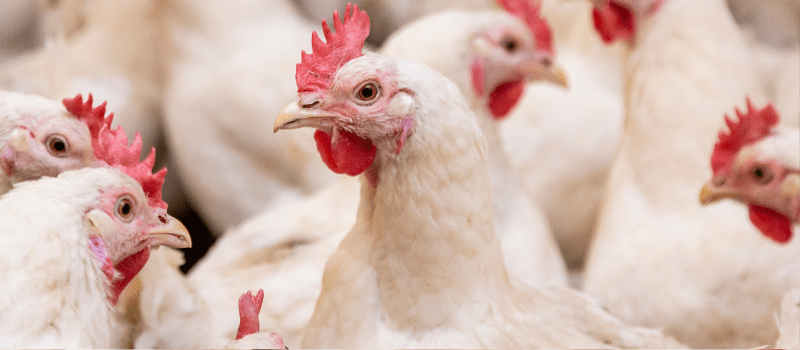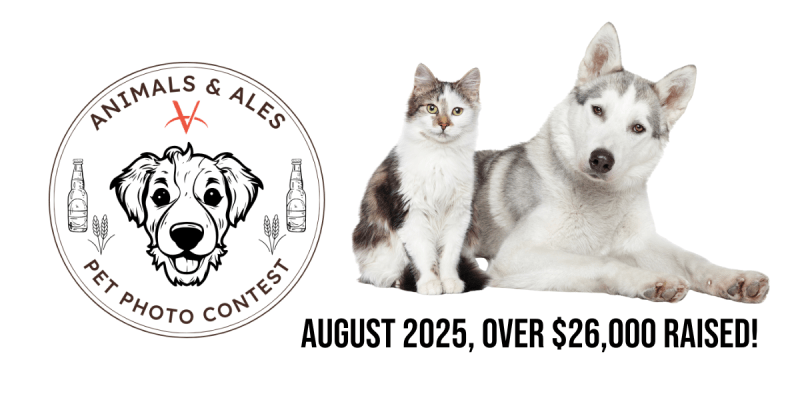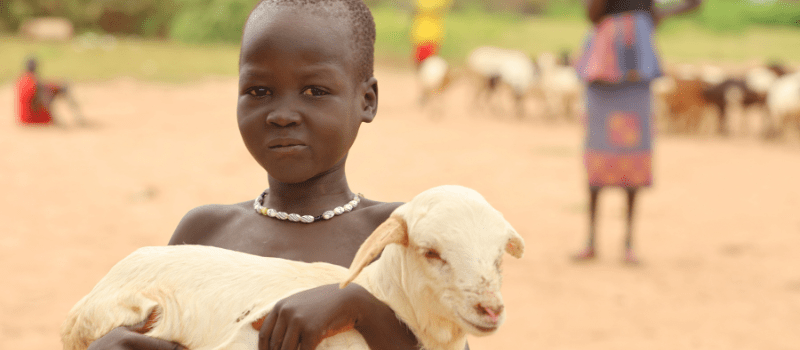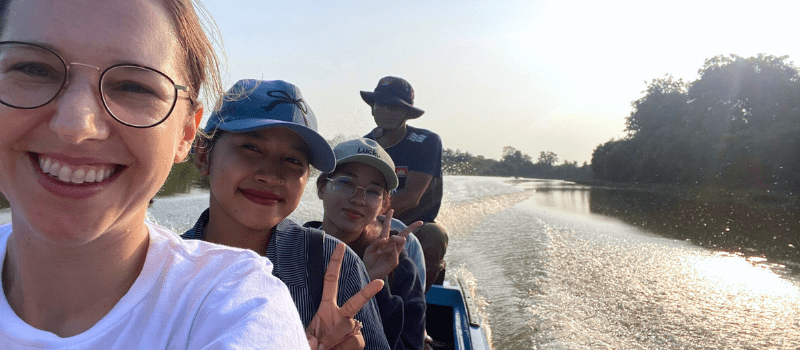#VETSVolunteerVoices brings you stories of our passionate VETS program volunteers from the field. This blog was written by Kayla Williams, a Veterinary Student and Animal Health Advisor who supported our VETS partner, the Apex Body of Women in Poultry Value Chain (WIPVaC-Apex) in Ghana from May to August 2025.
Imagine your flock of chickens suddenly begins dying. In North America, you’d just call your local veterinarian for help. But in a remote village in Ghana’s Volta region, where veterinary services are scarce, your flock might be gone before help ever arrives. Situations like this are unfortunately very common in developing countries — and something I witnessed first-hand during my time in Ghana this summer with Veterinarians Without Borders North America (VWB).
I participated in the Volunteers Engaged in Gender-Responsive Technical Solutions (VETS) program, which focuses on building capacity for small-scale farmers in Ghana. The program integrates gender equality into training on biosecurity, One Health, parasite management, and animal care. I worked alongside a local VETS program partner organization - Apex Body of Women in Poultry Value Chain (WIPVaC-Apex Ghana) - which brings together women across Ghana involved in the poultry sector to address their unique challenges and needs.
PHOTO:
PHOTO: WIPVaC-Apex
PHOTO:
Addressing Gender Roles in Animal Care
Early in my placement, I realized how important it was to address gender roles in animal husbandry. While men often own the farms, women perform much of the daily animal care. Training women not only empowered them but also improved the health and welfare of their animals and families.
I was also fortunate to speak to many young girls about One Health and how it relates to menstrual hygiene. In partnership with Global Women Development Promoter (GLOWDEP), WIPVaC-Apex, and VWB, an assembly was organized at Adidome Senior High School and the Girls Model School. My VETS volunteer colleague and I explained the importance of proper sanitary pad disposal for the health of people, animals, and the environment. Helping girls understand their role in environmental and animal health is key to driving positive change. They share this knowledge with each other and with their families.
I am proud to say that, alongside other inspiring female leaders, I helped build One Health knowledge among many women — and hopefully encouraged young girls to stay in school and even consider future careers as veterinarians.
Discovering the Human–Animal Bond in Ghana
As a second-year veterinary student from British Columbia, I’ve always been passionate about animal health and welfare. My education has given me a strong foundation in veterinary science, but my experience in Ghana opened my eyes to the global diversity of the human–animal bond.
Some may not immediately recognize this bond in production settings, but it is undeniably present. Farmers depend on their animals for survival, and in turn, animals rely on humans for care, shelter, and even psychological well-being. Before Ghana, most of my experience was with companion animals, whose bond with their owners is often visibly affectionate. Owners pamper them with food, toys, and walks. In Ghana, cats and dogs are uncommon, but poultry and livestock are abundant — and they rely on an unspoken bond with the farmers who care for them.
Stories of Change
One experience that deeply impacted me was meeting Gertrude Yankey, a small-scale pig farmer who proudly showed us the pens housing her pigs. They were her only source of income and held immense value in her life. Yet many of the pigs were sick or dying young, and she didn’t know why. Biosecurity was virtually unknown in the region — no foot baths, no handwashing stations, no sanitation measures. The pigs suffered from itchy, inflamed skin and visible parasites.
After attending our trainings on biosecurity and parasite management, Gertrude implemented simple changes on her farm. Within weeks, her pigs’ health improved dramatically, and her family’s livelihood stabilized. Witnessing her transformation underscored the powerful — and often overlooked — bond between farmers and their animals.
Another inspiring woman I met was Queen Mother Mama Amesinu II, from the town of Mafi-Dadoboe. As a Queen Mother, she advocates for women’s welfare in her community. She attended our trainings on One Health, biosecurity, antimicrobial resistance, and parasite management to educate herself and share knowledge with others.
She emphasized the importance of environmental cleanliness: “If one animal gets sick, all will get sick.” After sharing her new knowledge with her cousin, a local pig and poultry farmer, they quickly improved their biosecurity practices. Within months, they saw fewer parasites and healthier animals.
Mama Amesinu II went on to complete the Community Animal Health Worker training through the Women in Livestock Microenterprise Development (WILMED) project, funded by the Peter Gilgan Foundation. This initiative builds women’s capacity to lead sustainable livelihood activities, improve household nutrition, and access basic veterinary and health services. She now serves as a leader in her community, helping address the shortage of veterinary staff.
A New Perspective on Veterinary Medicine
These are only two of the many women and men I saw impacted through my placement and the support of the team at WIPVaC-Apex. These experiences reshaped my understanding of what it means to be a veterinarian. I learned that the human–animal bond is not limited to pets in urban homes — it exists everywhere, in every relationship between people and animals.
As a future veterinarian, I want to honour and strengthen that bond, whether I’m treating a beloved family dog or a farmer’s only source of income.
To future VETS volunteers, I encourage you to embrace the diversity of what the human–animal bond can look like. Keep an open mind, listen to the community’s needs, and you will build lasting relationships with people on the other side of the world.
VETS is an 8-year initiative (2020-2028) to improve the economic and social well-being of marginalized people, particularly women and girls, in 6 countries across Africa and Asia. In collaboration with local partners, the program is implemented through 190 Canadian volunteers on international assignment and is generously funded by Global Affairs Canada. Learn more.





